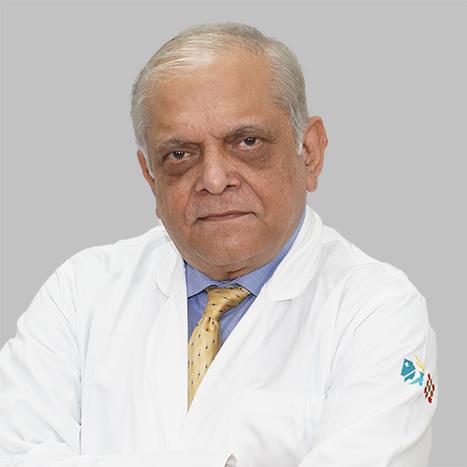Could not find what you are looking for?
- Departments
- Best Neurology Hospital In India | Top Hospital For Neurosurgery - Apollo Institute of Neurosciences
- Best Hospital For Epileptology In India
Best Hospital for Epileptology in India
Epileptology
Overview
Epileptology is a specialised branch of neurology dedicated to the diagnosis, treatment, and management of epilepsy and seizure disorders. Epilepsy is a chronic neurological condition characterised by recurrent seizures, which can significantly impact a person’s quality of life. The field of epileptology involves clinical evaluation, neuroimaging, electroencephalography (EEG), and the development of personalised treatment plans.
At Apollo Hospitals, we recognise the complexities of epilepsy and are committed to delivering comprehensive care tailored to each patient’s unique needs. Our multidisciplinary approach ensures that patients receive the best possible outcomes through advanced diagnostic techniques and innovative treatment options.
Why Choose Apollo Hospitals for Epilepsy Care?
Apollo Hospitals is a leader in epileptology, offering world-class expertise, cutting-edge technology, and patient-centric care. Our team of highly skilled neurologists and epileptologists are dedicated to providing accurate diagnoses and effective treatment strategies for epilepsy management.
Key Reasons to Choose Apollo:
- State-of-the-art diagnostic facilities: We utilise advanced neuroimaging techniques, high-resolution MRI scans, and video EEG monitoring for precise diagnosis.
- Personalised treatment plans: Our specialists develop tailored treatment strategies based on the type and severity of epilepsy.
- Comprehensive care approach: We address not just the medical aspects of epilepsy but also the emotional, psychological, and lifestyle-related challenges faced by patients.
- Multidisciplinary team: Our team includes neurologists, neurosurgeons, neurophysiologists, dietitians, and mental health professionals to ensure holistic care.
Advanced Treatment Options for Epilepsy
At Apollo Hospitals, we offer a comprehensive range of evidence-based treatment options tailored to each patient’s needs:
- Medications: Anti-epileptic drugs (AEDs) are the first-line treatment for most epilepsy cases. Our specialists work closely with patients to find the most effective medication with minimal side effects.
- Surgical Interventions: For drug-resistant epilepsy, surgical options may be recommended. Procedures include resective surgery (removing the seizure focus) and minimally invasive techniques such as vagus nerve stimulation (VNS) and responsive neurostimulation (RNS).
- Dietary Therapy: The ketogenic diet and modified Atkins diet can be effective in controlling seizures, especially in children. Our dietitians work closely with patients to develop personalised nutrition plans.
- Neurostimulation Therapies: Advanced treatments such as deep brain stimulation (DBS) are available for patients who do not respond to conventional therapies.
- Psychosocial Support & Counselling: Living with epilepsy can be challenging. Our team offers counselling services, support groups, and educational resources to help patients and families manage the emotional and social aspects of the condition.
Cutting-Edge Diagnostic & Treatment Technologies
Apollo Hospitals is at the forefront of technological advancements in epileptology. Our facilities feature:
- High-resolution MRI scans for detailed brain imaging.
- Advanced EEG monitoring to track brain activity and pinpoint seizure origins.
- Video EEG monitoring for simultaneous video and brain activity recording, aiding in precise diagnosis.
- Telemedicine services to provide continuous specialist consultations from the comfort of home.
Frequently Asked Questions (FAQs)
- What is epilepsy? Epilepsy is a neurological disorder characterised by recurrent seizures caused by abnormal electrical activity in the brain. It can affect individuals of all ages.
- What causes epilepsy? Causes may include genetic factors, brain injuries, infections, strokes, or developmental disorders. In some cases, the exact cause remains unknown.
- How is epilepsy diagnosed? Diagnosis involves a detailed medical history, neurological exams, and diagnostic tests such as EEG and MRI scans.
- What are the treatment options for epilepsy? Treatment includes medications, surgery, dietary therapy, neurostimulation, and lifestyle modifications based on the type and severity of epilepsy.
- Can epilepsy be cured? While many patients achieve complete seizure control with treatment, epilepsy is often a lifelong condition requiring ongoing management.
- What should I do during a seizure? Ensure the person’s safety by removing hazards, placing them on their side, and avoiding restraint. Do not put anything in their mouth.
- Can I drive if I have epilepsy? Driving regulations vary based on seizure control. Consult your doctor regarding local laws and medical guidelines.
- Are there lifestyle changes that help manage epilepsy? Yes, maintaining a regular sleep schedule, managing stress, avoiding seizure triggers (e.g., alcohol, flashing lights), and following prescribed treatment can help.
- What support is available for people with epilepsy? Support includes patient education programmes, counselling services, and epilepsy support groups.














